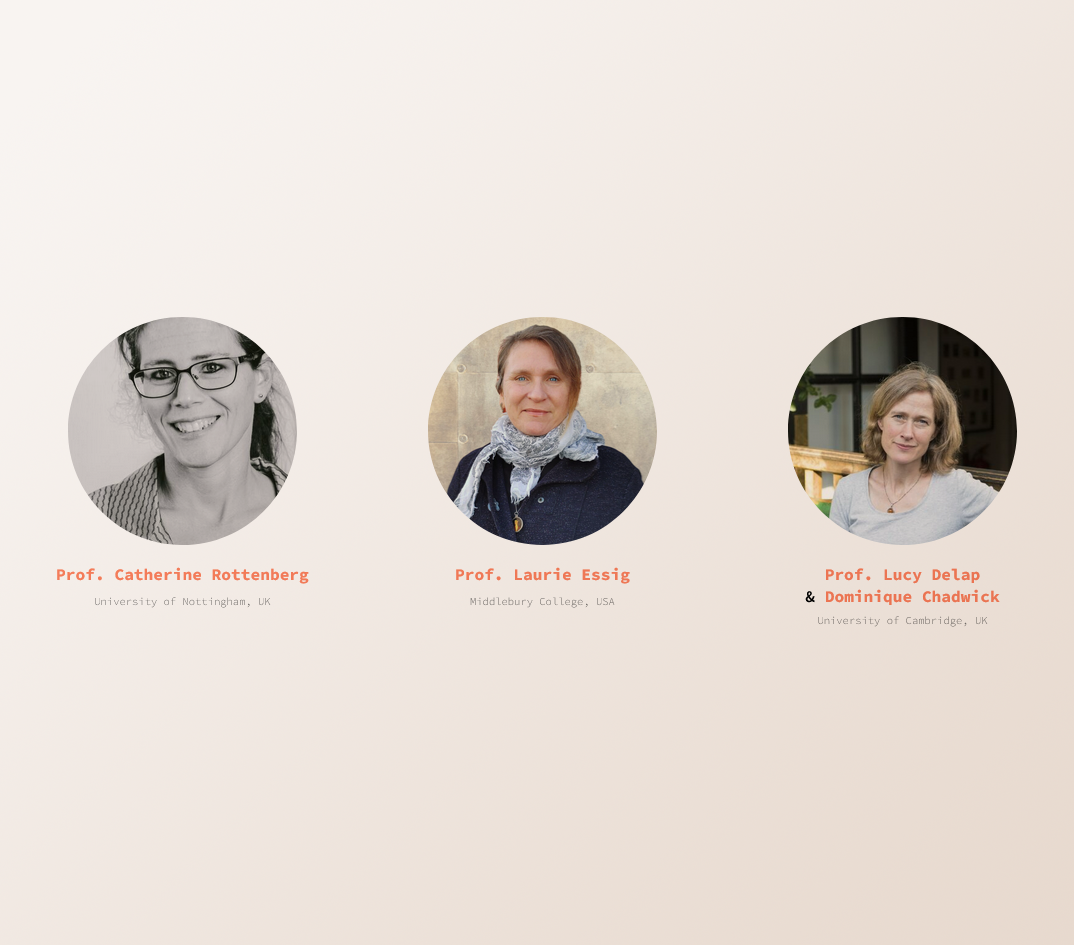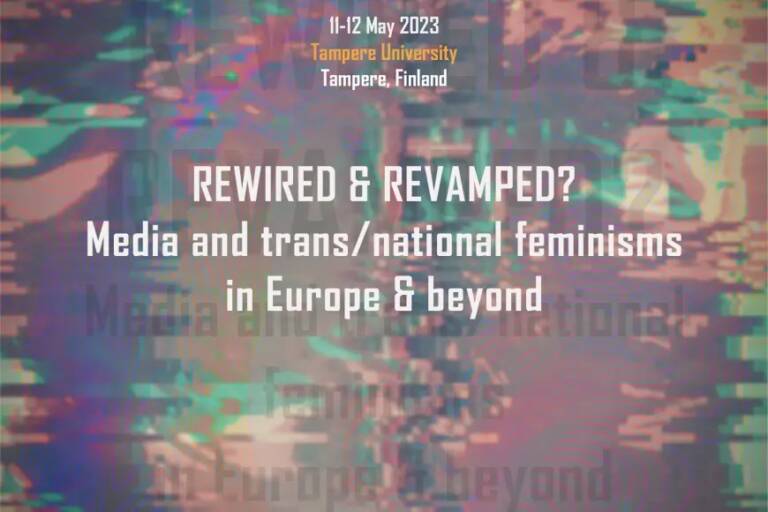Keynote 1
Lucy Delap & Dominique Chadwick
Participatory film and gender justice in postcolonial Africa
This paper explores practices of participatory film making, which grew in popularity in the 1990s and 2000s, inspired by critical pedagogy, newly affordable technologies and commitments to decolonising ‘development’ initiatives in the global South. A collaborative investigation by historian Lucy Delap and film director Dominique Chadwick outlines the practical and ethical concerns of feminist film making as ‘action research’, and locates it within the mediascape of the turn of the millennium, as well as the context of the HIV-AIDS epidemic. Offering case studies of film making in Ghana and newly-independent Namibia, the paper explores the uses of film and other media by local activist or non-governmental groups such as Namibia Women’s Health Network and Sister Namibia. It reflects on film training, scripting, film production, film screening to local audiences in targeted rural communities and distribution as sites of systematic power asymmetries yet also points of leverage for social change and gender justice.
Chair: Saara Ratilainen
Professor Lucy Delap teaches history at the University of Cambridge and is a Fellow of Murray Edwards College. She has published widely on the history of feminism, gender, labour and media, including the prize-winning The Feminist Avant-Garde: Transatlantic Encounters of the early twentieth century, Knowing Their Place: Domestic Service in Twentieth Century Britain in 2011, and Feminisms: a global history in 2020.
Dr Dominique Chadwick works as an independent film consultant, reporting on humanitarian issues in over 40 countries. She has a life lifelong interest in the study of vulnerable rural communities and a belief in the power of participatory work to transform the lives of women and men of marginalised communities. Over the last 25 years she designed and ran participatory film projects with a strong focus on gender issues. Her work is premised on a commitment to training women in film production, leading them to share their untold stories on critical issues such as girls’ education, violence against women, polygamy, health, HIV/AIDS, land ownership, disability, child trafficking and forced marriage.
Keynote 2
Laurie Essig
Feminism, Fascism, and the Future: Global Anti-Gender Ideology and the Fight of Our Lives
This talk will look at a variety of media spaces (Poland, Hungary, Argentina, Brazil, Spain, and the US) where the mobilization of anti-gender ideology has put our future in peril. The global anti-gender ideology began with the Catholic Church’s response to attempts to insert basic sexual and reproductive rights in the UN’s definition of universal human rights. It has since grown as the animating ideology of a variety of fascistic political movements. From Russia’s 2014 anti-gay propaganda law to Texas’s criminalization of parents who support trans-affirming care for their children, gender and sexuality are increasingly mobilized as a threat to the social order and as a folk devil for all that is wrong with the world, from economic hardships to immigration issues. The anti-gender ideology movement simultaneously attacks women and LGBTQ citizens and yet has united many feminist movements into powerful coalitions to fight for basic rights. And all of this is playing out in the public sphere in right wing media outlets and the feminist blogosphere and vlogosphere. By taking note of the ideological clash in the media, we can at least imagine that a future is possible.
Chair: Daniil Zhaivoronok
Prof. Laurie Essig is a Professor of Gender, Sexuality & Feminist Studies at Middlebury College. She is a sociologist who teaches courses on how power shapes our bodies and our desires Her courses include Sociology of Heterosexuality, White People, Men & Masculinities and Feminist Blogging. She is the author of Queer in Russia: A Story of Sex, Self and the Other (Duke, 1999), American Plastic: Credit Cards, Boob Jobs and Our Quest for Perfection (Beacon, 2010) and Love, Inc.: Dating Apps, the Big White Wedding, and Chasing the Happily Neverafter. Essig has written for a variety of publications including the Washington Post, the New York Times, the Conversation and the Chronicle of Higher Education.
Keynote 3
In conversation with Catherine Rottenberg
Professor Catherine Rottenberg in conversation with members of FEMCORUS explores the relevance of neoliberal feminism for the current context marked by the tectonic geopolitical changes and a rise of conservative rhetoric worldwide. The discussion touches on the issues of the global hierarchies of knowledge production within Feminist Studies, the migration of theories from one socio-cultural context to another, and the question of the diversity of feminisms.
Chairs: Saara Ratilainen & Galina Miazhevich
Prof. Catherine Rottenberg is a Professor of Feminist Thought and Culture in the Department of American and Canadian Studies at the University of Nottingham. Her monographs include The Rise of Neoliberal Feminism (2018) and Performing Americanness: Race, Class, and Gender in Modern African-American and Jewish-American Literature (2008). She is also the co-author of The Care Manifesto (2020) and editor of This Is Not A Feminism Textbook! (2023) and Black Harlem and the Jewish Lower East Side: Narratives out of Time (2013).


